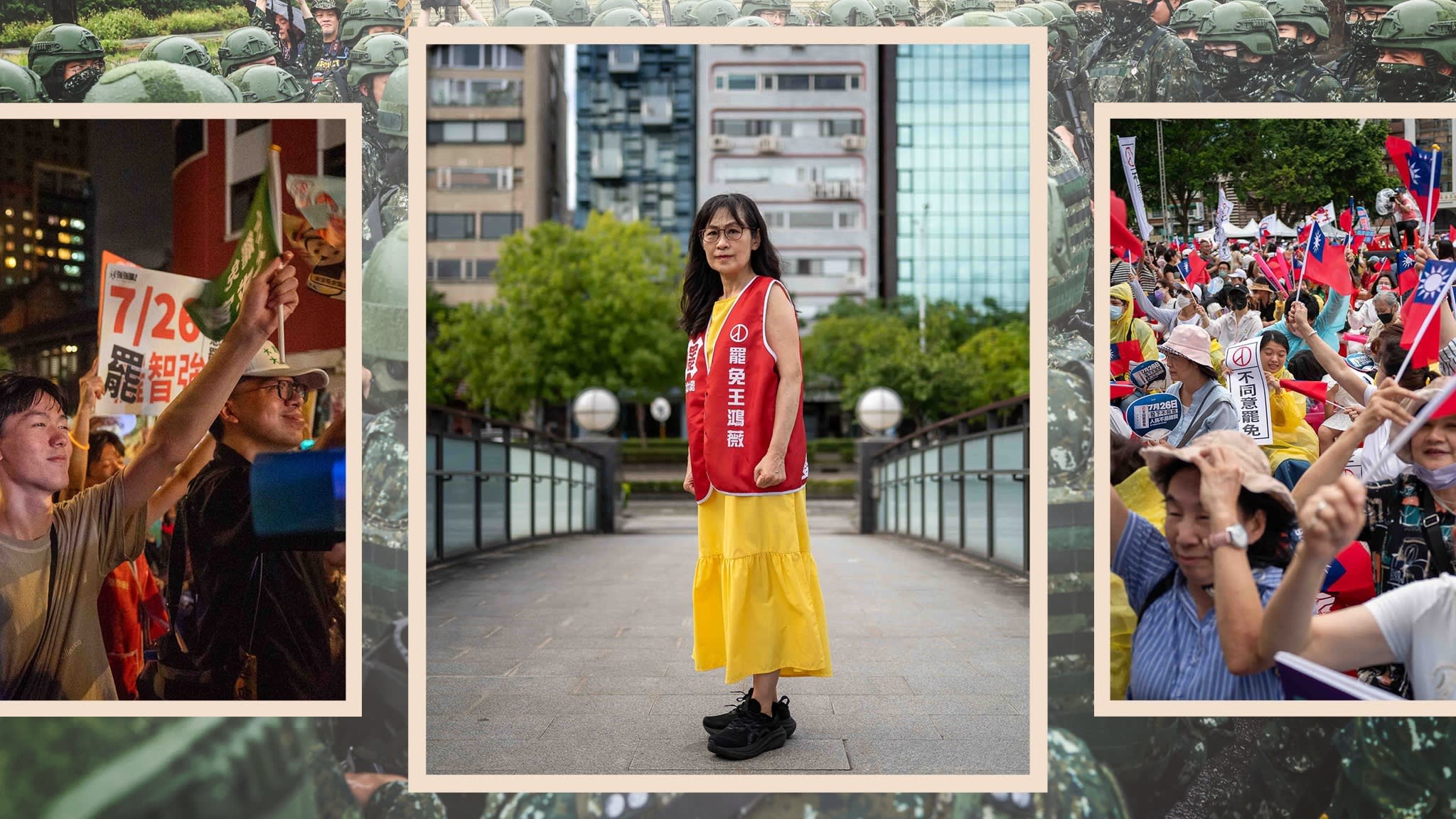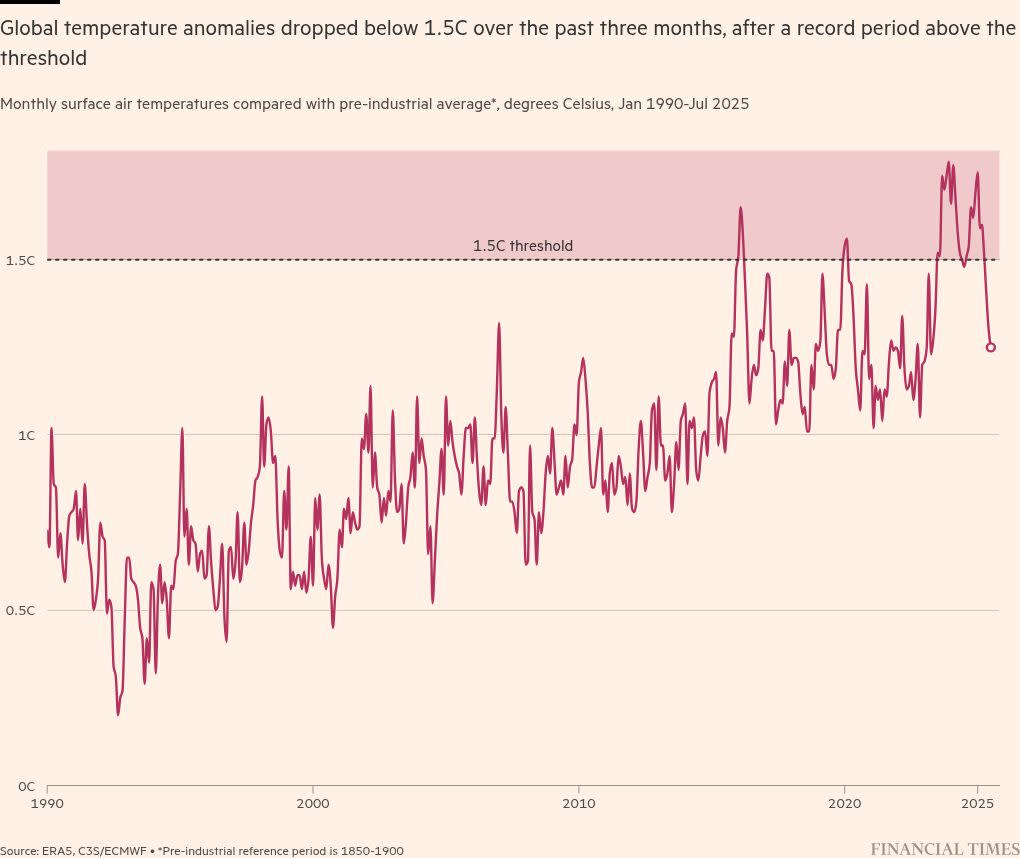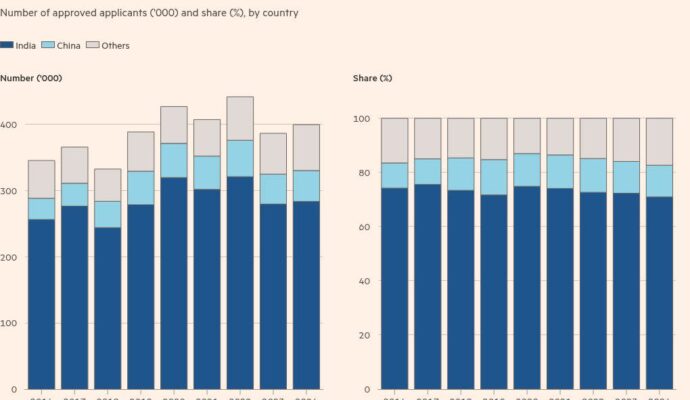This article is an on-site version of our FirstFT newsletter. Subscribers can sign up to our Asia, Europe/Africa or Americas edition to get the newsletter delivered every weekday morning. Explore all of our newsletters here
Good morning, happy Friday and welcome back to FirstFT Asia. In today’s newsletter:
Beijing takes aim at bureaucratism
Will Modi stand up to Washington?
How China could subvert Taiwan from within
China has implored officials to hold fewer meetings and slash the length of official reports, ordering a nationwide campaign to tackle the “stubborn and persistent ills” of “formalism and bureaucratism”.
What to know: A directive issued this week by the ruling Chinese Communist party and the state council, China’s cabinet, called on cadres to “improve document quality”, ensure they “adhere to a ‘short, practical and concise’ writing style” and limit themselves to 5,000 characters. The order — which contained 4,845 characters, only slightly below the official limit — outlined 21 provisions including improvements to how officials are assessed, the process for their secondment and the proliferation of government mobile apps.
Why it matters: The order was the latest shot in a renewed battle under leader Xi Jinping to curb fruitless activity in China’s vast party-state bureaucracy and refocus officials’ efforts on strengthening the national economy. It came just three months after Beijing tightened rules on official dining, smoking and drinking expenses, known as “gourmet graft”. Read more about the Communist party’s latest campaign.
“Sinicisation”: China plans to exclude Tibetan as a core subject from the national college entrance exam for the majority of students in the autonomous region, raising concerns over the future of the language.
Chinese economy: China’s exports rose faster than expected last month, ahead of the expiry next week of a tariff truce with the US.
Here’s what else we’re keeping tabs on today and over the weekend:
Economic data: China reports July inflation data on Saturday.
War in Ukraine: Trump has threatened Russia with tougher sanctions if no ceasefire is agreed by today.
Monetary policy: The Bank of Japan publishes the summary of opinions from its July rate-setting meeting.
Singapore: National Day, commemorating Singapore’s independence from Malaysia on August 9 1965, is on Saturday.
Japan: Saturday is also the 80th anniversary of the US atomic bombing of Nagasaki, which killed more than 74,000 people in the city.
How well did you keep up with the news this week? Take our quiz.
Five more top stories
1. Donald Trump has nominated Stephen Miran to fill a soon-to-be vacant seat on the Federal Reserve’s board of governors. The seat would give Miran a vote on the rate-setting Federal Open Market Committee, where he is seen as likely to support Trump’s calls for aggressive interest rate cuts.
2. Prime Minister Narendra Modi insisted he would “never compromise” on the interests of India’s farmers despite Trump’s imposition of a 50 per cent tariff, escalating a stand-off over trade and the country’s purchases of Russian oil. India has now joined Brazil at the top of the list of countries facing the highest levies from Trump.
‘Narendra Surrender’? Many Indians fear their country could be on course for an ugly confrontation with the US — and wonder whether their current leader will be as willing to stand up to Washington.
More trade news: Toyota has downgraded its full-year profit forecast after the Japanese automaker predicted a ¥1.4tn ($9.5bn) hit this year from US tariffs.
3. Samsung Electronics will produce digital image sensors for Apple in the latest sign that South Korean technology companies are starting to reap the benefits of a series of US investments and Trump’s aggressive tariff policies. Read more about the iPhone makers plans to work with Samsung’s semiconductor facility in Austin, Texas.
More AI news: OpenAI has unveiled GPT-5, its long-awaited update to its flagship large language model that powers ChatGPT.
More Apple news: The Silicon Valley giant has lost about a dozen of its AI staff, including top researchers, to rivals.
4. Israeli Prime Minister Benjamin Netanyahu has said he intends to take full control of Gaza. The proposal being debated by Netanyahu’s security cabinet raises the prospect of an offensive stretching for several months and an open-ended Israeli occupation of the besieged Palestinian enclave. Here are more details.
5. Trump has called for the newly appointed chief executive of Intel, Lip-Bu Tan, to resign, alleging that the semiconductor industry veteran is “highly conflicted”. The post did not detail Tan’s alleged conflicts of interest. But it came after a letter from Tom Cotton, the Republican head of the Senate intelligence committee, to Intel’s board chair expressing concern about Tan’s ties to China. Read the full story.
The Big Read

Concerns in the west about China seizing Taiwan have centred on the risk of an invasion, with US military commanders warning that the manoeuvres the Chinese People’s Liberation Army is conducting around the island are no longer exercises but “rehearsals” for an attack. But many Taiwanese are far more concerned that China could subvert their country from within, accusing their own politicians of facilitating Beijing’s efforts.
We’re also reading . . .
Artificial intelligence: Following China’s success, US companies are hoping to defend the centrality of their commercial models, writes Richard Waters.
Mafia crackdown: Italy’s experience shows that fighting organised crime can deliver economic dividends, writes Ixart Miquel-Flores, a supervision analyst at the ECB.
Darkening mood: Sectarian violence is undermining the cautious faith many Syrians had placed in the new regime.
Chart of the day
Flash floods are causing havoc across swaths of Asia even as scientists said the global temperature rise in the past three months had eased from record levels.
Take a break from the news . . .
Los Angeles is, famously, a dreamy town that can feel vast and unknowable on first, second and even third visit. As part of our guide to Los Angeles, FT Globetrotter asked FT readers, colleagues, and Angelenos for their rules to the city: how to drive, what to see, what to skip and what spots are not just buzzy but actually great.



